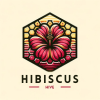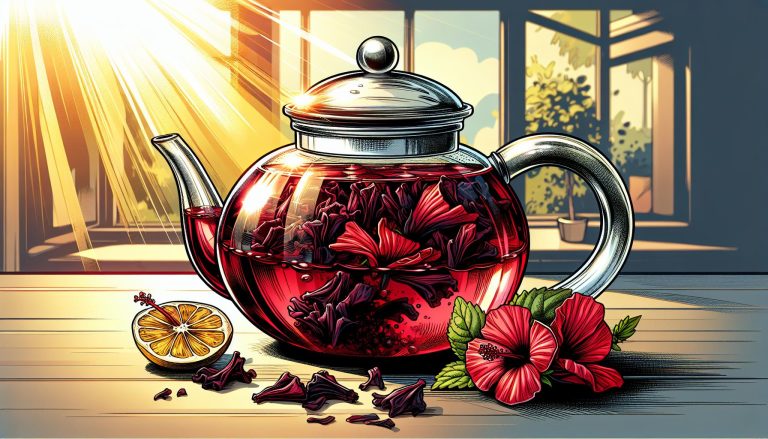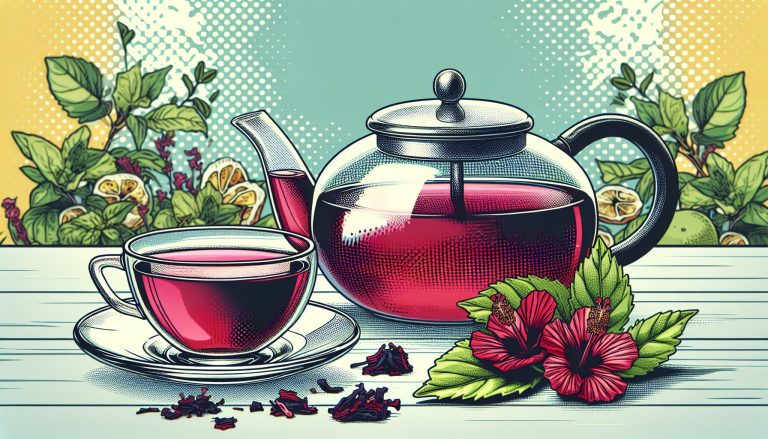10 Surprising Health Benefits of Hibiscus: Nature’s Superfood Revealed
Have you ever wondered about the vibrant red flower that often graces tropical landscapes? That’s hibiscus, and it’s more than just a pretty face. As a passionate gardener and herbal enthusiast, I’ve discovered that this stunning bloom packs a powerful punch when it comes to health benefits.
From ancient remedies to modern research, hibiscus has been making waves in the wellness world. Its tart, cranberry-like flavor has found its way into teas, supplements, and even culinary creations. But what exactly makes this flower so special? I’ll dive into the fascinating world of hibiscus and explore its numerous potential benefits for your health and well-being.
What Is Hibiscus?
Hibiscus is a genus of flowering plants in the mallow family, Malvaceae. It’s known for its large, colorful flowers and is widely cultivated for both ornamental and medicinal purposes.
Origin and Varieties
Hibiscus plants originate from warm temperate, subtropical, and tropical regions worldwide. There are hundreds of hibiscus species, with some of the most popular varieties including:
- Hibiscus rosa-sinensis (Chinese hibiscus)
- Hibiscus syriacus (Rose of Sharon)
- Hibiscus sabdariffa (Roselle)
- Hibiscus arnottianus (Hawaiian white hibiscus)
- Hibiscus moscheutos (Rose mallow)
Each variety has unique characteristics, from flower color and size to growth habits and preferred climates. The Hibiscus sabdariffa, commonly known as roselle, is particularly valued for its health benefits and is often used in herbal teas and supplements.
Health Benefits of Hibiscus
Hibiscus offers numerous health benefits, backed by scientific research and traditional use. Here’s an overview of its potential advantages for various aspects of health.
Lowering Blood Pressure
Hibiscus effectively reduces blood pressure in adults with mild hypertension. Studies show that consuming hibiscus tea daily for 6 weeks lowers systolic blood pressure by 7.2 mmHg on average. This effect is attributed to hibiscus’s ACE-inhibiting properties, similar to some blood pressure medications. Hibiscus’s antioxidants, including anthocyanins and polyphenols, also contribute to its blood pressure-lowering effects by improving vascular function and reducing inflammation.
Supporting Heart Health
Hibiscus supports cardiovascular health through multiple mechanisms. It reduces LDL cholesterol levels by up to 8% and increases HDL cholesterol by 4% in some studies. Hibiscus also decreases triglycerides, a type of fat linked to heart disease. Its antioxidant properties protect against oxidative stress, a key factor in heart disease development. Regular consumption of hibiscus tea is associated with a 36% lower risk of heart disease in observational studies.
Boosting Immune System
Hibiscus enhances immune function through its high vitamin C content and other immune-boosting compounds. A single cup of hibiscus tea provides 20% of the daily recommended intake of vitamin C. Hibiscus extract increases the production of antibodies and white blood cells in animal studies, improving the body’s ability to fight infections. Its antimicrobial properties also help combat various pathogens, including E. coli and Candida albicans.
Nutritional Profile of Hibiscus
Hibiscus is packed with essential nutrients that contribute to its numerous health benefits. Let’s delve into the specific vitamins, minerals, and antioxidants found in this vibrant flower.
Vitamins and Minerals
Hibiscus is a nutrient-dense plant, rich in vital vitamins and minerals. It’s an excellent source of vitamin C, providing a significant boost to the immune system. The flower also contains vitamin A, which supports eye health and skin function. In terms of minerals, hibiscus offers calcium for strong bones and teeth, iron for healthy blood cells, and potassium for proper heart and muscle function. Additionally, it contains small amounts of magnesium and zinc, contributing to overall cellular health.
Antioxidants
Hibiscus is renowned for its high antioxidant content, which plays a crucial role in protecting the body against oxidative stress. The flower is rich in anthocyanins, flavonoids, and polyphenols, potent antioxidants that combat free radicals and reduce inflammation. These compounds give hibiscus its deep red color and contribute to its potential health benefits, including cardiovascular support and improved blood sugar control. The antioxidant profile of hibiscus is comparable to other superfoods, making it a valuable addition to a balanced diet.
Culinary Uses of Hibiscus
Hibiscus isn’t just a pretty flower; it’s a versatile ingredient in the culinary world. Its tart, cranberry-like flavor and vibrant color make it a popular choice for various dishes and drinks.
Teas and Beverages
Hibiscus tea is the most common culinary application of this flower. I’ve found that steeping dried hibiscus flowers in hot water for 5-10 minutes produces a refreshing, ruby-red infusion. It’s often enjoyed hot or cold and can be sweetened to taste. Many commercial tea blends incorporate hibiscus for its color and tangy flavor. Beyond traditional tea, hibiscus is used in:
- Cocktails: Mixologists use hibiscus syrup or tea in cocktails for a unique flavor and vivid hue.
- Lemonades: Hibiscus lemonade offers a tart twist on the classic summer beverage.
- Kombucha: Some brewers add hibiscus to kombucha for flavor and probiotic benefits.
- Smoothies: Dried hibiscus or hibiscus tea adds a tangy kick to fruit smoothies.
Culinary Applications
Hibiscus extends beyond beverages in the culinary world. Its versatility shines in various dishes:
- Jellies and jams: The pectin in hibiscus calyxes makes it ideal for preserves.
- Sauces: Hibiscus reduction sauces complement poultry and fish dishes.
- Salads: Candied hibiscus flowers add a sweet-tart crunch to salads.
- Baked goods: Hibiscus flour or syrup infuses cakes and cookies with unique flavor.
- Seasonings: Dried and ground hibiscus adds a tart note to spice blends.
- Garnishes: Fresh hibiscus flowers make striking edible decorations for desserts and cocktails.
In Mexican cuisine, dried hibiscus flowers (known as “flor de Jamaica”) are rehydrated and used in tacos, quesadillas, and as a meat substitute. The flowers’ texture mimics shredded meat, making them a popular choice for vegetarian dishes.
Potential Side Effects and Precautions
While hibiscus offers numerous health benefits, it’s essential to be aware of potential side effects and precautions. I’ll outline some key considerations to keep in mind when consuming hibiscus:
Pregnancy and Breastfeeding
Pregnant and breastfeeding women should avoid consuming hibiscus. Studies suggest that hibiscus may have estrogen-like effects and could potentially cause complications during pregnancy or affect hormone levels in breast milk.
Blood Pressure Concerns
Hibiscus effectively lowers blood pressure, which can be beneficial for some individuals. However, those with already low blood pressure or taking blood pressure medications should consult a healthcare provider before consuming hibiscus to avoid potential interactions or excessive blood pressure reduction.
Diabetes Management
Hibiscus may affect blood sugar levels. Diabetics or individuals taking medications to control blood sugar should monitor their levels closely when consuming hibiscus and consult with their healthcare provider to adjust medication if necessary.
Drug Interactions
Hibiscus can interact with certain medications:
- Chloroquine: Hibiscus may decrease the effectiveness of this antimalarial drug.
- Acetaminophen: Hibiscus might alter how the liver processes this pain reliever.
- Diuretics: Combining hibiscus with diuretics could lead to excessive fluid loss.
Allergic Reactions
Some individuals may experience allergic reactions to hibiscus, including:
- Itching
- Hives
- Swelling of the face, lips, or tongue
- Difficulty breathing
If any of these symptoms occur, discontinue use and seek medical attention immediately.
Digestive Issues
In some cases, consuming large amounts of hibiscus tea may cause mild side effects such as:
- Stomach upset
- Gas
- Constipation
To minimize these effects, start with small amounts and gradually increase consumption.
Surgery Considerations
Due to its potential effects on blood pressure and blood sugar, it’s advisable to stop consuming hibiscus at least two weeks before any scheduled surgery.
By being aware of these potential side effects and precautions, you can make informed decisions about incorporating hibiscus into your diet or supplement routine. Always consult with a healthcare professional before making significant changes to your diet or starting any new herbal supplement regimen.
How to Incorporate Hibiscus into Your Diet
Incorporating hibiscus into your diet is easy and delicious. Here are several ways to enjoy the tart, flavorful benefits of this versatile flower:
- Brew hibiscus tea
- Steep dried hibiscus flowers in hot water for 5-10 minutes
- Strain and enjoy hot or iced
- Add honey or lemon for extra flavor
- Create refreshing beverages
- Mix hibiscus tea with sparkling water for a fizzy drink
- Blend hibiscus tea into smoothies for added antioxidants
- Use as a base for homemade kombucha
- Enhance your cooking
- Add dried hibiscus to salads for a pop of color and tangy flavor
- Use hibiscus syrup as a glaze for meats or roasted vegetables
- Incorporate into baked goods like muffins or cookies
- Make hibiscus-infused dishes
- Rehydrate dried hibiscus flowers for use in tacos or quesadillas
- Create a hibiscus jam or jelly for spreading on toast
- Use as a natural food coloring for frosting or desserts
- Experiment with cocktails
- Mix hibiscus tea with vodka or gin for a floral cocktail
- Garnish drinks with fresh hibiscus flowers for an elegant touch
- Create hibiscus-infused simple syrup for cocktails
By incorporating hibiscus into your diet through these methods, you’ll enjoy its unique flavor and potential health benefits. Remember to start with small amounts to assess your tolerance and enjoy the vibrant addition to your meals and drinks.
Conclusion
Hibiscus is a versatile and beneficial plant that offers numerous health advantages and culinary applications. From its potential to lower blood pressure and boost heart health to its rich antioxidant content and immune-supporting properties, hibiscus can be a valuable addition to your diet. Whether you enjoy it as a refreshing tea, incorporate it into your cooking, or use it in creative beverages, hibiscus provides a unique flavor and potential health benefits. As with any dietary change, it’s important to start slowly and consult with a healthcare professional if you have any concerns.







